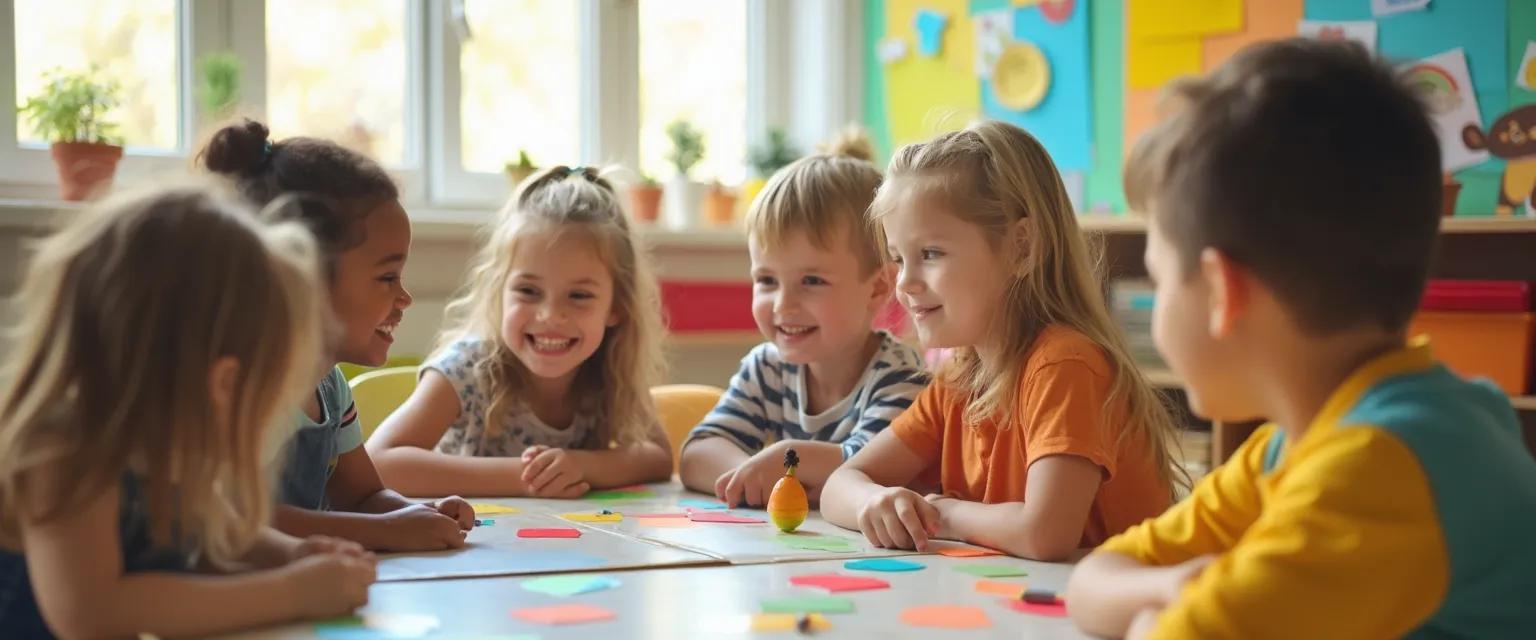7 Fun Classroom Games That Build Self Awareness Social Emotional Learning
Fostering self awareness social emotional learning in the classroom doesn't have to feel like an extra curriculum burden. In fact, the most effective approaches often come disguised as fun, engaging games that children eagerly participate in without realizing they're developing crucial life skills. These playful activities create a safe space where students can explore their emotions, recognize their strengths, and understand their reactions to different situations. When children develop strong self-awareness, they're better equipped to navigate social interactions, regulate emotions, and build healthier relationships with peers and adults alike.
The beauty of incorporating self awareness social emotional learning through games is that they require minimal preparation while delivering maximum impact. These activities can easily fit into transition periods, morning meetings, or dedicated social-emotional learning blocks. By making self-awareness fun and interactive, teachers remove the intimidation factor that sometimes comes with discussing emotions and personal growth. Let's explore seven classroom games that secretly but effectively build children's self-awareness skills.
3 Quick Self Awareness Social Emotional Learning Games for Daily Practice
These first three games are perfect for busy classrooms as they require minimal setup and can be completed in just 5-10 minutes, making them ideal for daily practice of self awareness social emotional learning.
1. Emotion Charades
In this quick activity, students take turns drawing emotion cards and acting them out while classmates guess the feeling. This game builds emotional vocabulary and helps children recognize physical manifestations of different emotions. When students can identify feelings in others, they become more adept at recognizing those same emotions within themselves – a cornerstone of self awareness social emotional learning.
2. Strength Spotting
Create a circle where each student takes a turn being in the spotlight while peers share one strength they've noticed about them. This powerful exercise helps children recognize their unique qualities through the eyes of others. By hearing positive reflections, students develop a more nuanced understanding of their abilities and contributions to the classroom community, enhancing their resilience and self-awareness.
3. Weather Report Check-In
Start the day by having students describe their emotional state as a weather report. A student might say, "I'm feeling partly cloudy with a chance of sunshine later," indicating mixed emotions but overall optimism. This metaphorical approach makes it easier for children to articulate complex feelings and builds self-monitoring skills essential to self awareness social emotional learning.
4 Deeper Self Awareness Social Emotional Learning Games for Dedicated Sessions
When you have more time available, these four activities provide deeper opportunities for self awareness social emotional learning through extended engagement and reflection.
1. Personal Shield
Students create a shield divided into four sections: "What I'm good at," "What makes me happy," "What I value," and "What I'm working on." This creative activity encourages children to reflect on multiple dimensions of their identity and helps them visualize their strengths and growth areas in a concrete way.
2. Emotional Thermometer
Introduce a visual thermometer with different emotion zones (calm, excited, worried, angry). Throughout the day, students can move their name markers to indicate their current emotional state. This visual tool makes abstract emotions tangible and helps children develop the self-monitoring skills essential to effective self awareness social emotional learning.
3. Success Circle
Students sit in a circle and take turns sharing a recent success, no matter how small. After sharing, classmates offer specific positive feedback about the achievement. This ritual builds confidence and helps children recognize their progress, fostering a growth mindset that's crucial for ongoing self-development.
4. Perspective Glasses
Using paper "glasses," students practice looking at situations from different perspectives. When facing a classroom conflict, children take turns wearing the glasses and describing how the situation might look from another person's viewpoint. This powerful exercise develops empathy and helps students understand how their actions affect others – a sophisticated aspect of emotional awareness.
Integrating Self Awareness Social Emotional Learning Into Your Teaching Routine
The true power of these games comes from consistent implementation. To maximize their impact on self awareness social emotional learning, consider establishing a regular schedule – perhaps dedicating Monday mornings to Emotion Charades, using Weather Reports daily, and reserving Friday afternoons for deeper activities like the Personal Shield.
When measuring progress, look beyond academic metrics. Notice how students' language about emotions becomes more nuanced, how conflicts resolve more quickly, or how children begin to self-regulate without prompting. These behavioral shifts indicate growing self-awareness that will serve them well beyond the classroom.
Remember that self awareness social emotional learning games can be adapted for different age groups. For younger students, simplify the language and provide more visual supports. For older children, add complexity by exploring more nuanced emotions or deeper reflective questions.
By weaving these seven games into your classroom routine, you're providing students with essential self awareness social emotional learning opportunities that will benefit them throughout their lives. The beauty of this approach is that children simply experience them as fun activities while developing crucial skills that form the foundation for emotional intelligence and social success.




